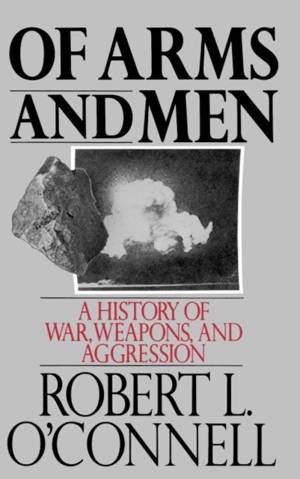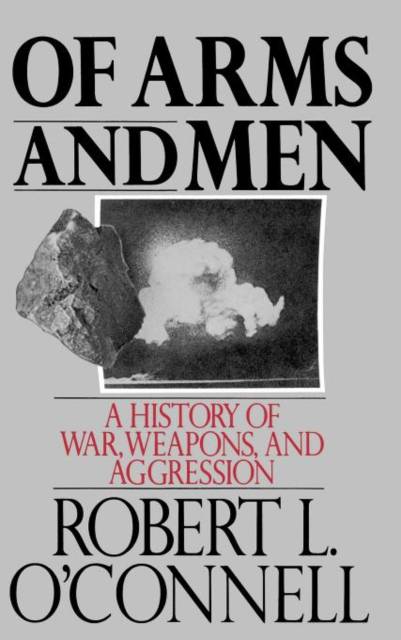
- Afhalen na 1 uur in een winkel met voorraad
- Gratis thuislevering in België vanaf € 30
- Ruim aanbod met 7 miljoen producten
- Afhalen na 1 uur in een winkel met voorraad
- Gratis thuislevering in België vanaf € 30
- Ruim aanbod met 7 miljoen producten
Zoeken
€ 95,95
+ 191 punten
Uitvoering
Omschrijving
The appearance of the crossbow on the European battle field in A.D. 1100 as the weapon of choice for shooting down knights threatened the status quo of medieval chivalric fighting techniques. By 1139 the Church had intervened, outlawing the use of the crossbow among Christians. With this edict, arms control was born.
As Robert L. O'Connell reveals in this vividly written history of weapons in Western culture, that first attempt at an arms control measure characterizes the complex and often paradoxical relationship between men and arms throughout the centuries. In a sweeping narrative that ranges from prehistoric times to the nuclear age, O'Connell demonstrates how social and economic conditions determine the types of weapons and the tactics used in warfare and how, in turn, innovations in weapons technology often undercut social values. He describes, for instance, how the invention of the gun required a redefinition of courage from aggressive ferocity to calmness under fire; and how the machine gun in World War I so overthrew traditional notions of combat that Lord Kitchener exclaimed, "This isn't war!" The technology unleashed during the Great War radically altered our perceptions of ourselves, as these new weapons made human qualities almost irrelevant in combat. With the invention of the atomic bomb, humanity itself became subservient to the weapons it had produced.
Of Arms and Men brilliantly integrates the evolution of politics, weapons, strategy, and tactics into a coherent narrative, one spiced with striking portraits of men in combat and penetrating insights into why men go to war.
As Robert L. O'Connell reveals in this vividly written history of weapons in Western culture, that first attempt at an arms control measure characterizes the complex and often paradoxical relationship between men and arms throughout the centuries. In a sweeping narrative that ranges from prehistoric times to the nuclear age, O'Connell demonstrates how social and economic conditions determine the types of weapons and the tactics used in warfare and how, in turn, innovations in weapons technology often undercut social values. He describes, for instance, how the invention of the gun required a redefinition of courage from aggressive ferocity to calmness under fire; and how the machine gun in World War I so overthrew traditional notions of combat that Lord Kitchener exclaimed, "This isn't war!" The technology unleashed during the Great War radically altered our perceptions of ourselves, as these new weapons made human qualities almost irrelevant in combat. With the invention of the atomic bomb, humanity itself became subservient to the weapons it had produced.
Of Arms and Men brilliantly integrates the evolution of politics, weapons, strategy, and tactics into a coherent narrative, one spiced with striking portraits of men in combat and penetrating insights into why men go to war.
Specificaties
Betrokkenen
- Auteur(s):
- Uitgeverij:
Inhoud
- Aantal bladzijden:
- 384
- Taal:
- Engels
Eigenschappen
- Productcode (EAN):
- 9780195053593
- Verschijningsdatum:
- 16/03/1989
- Uitvoering:
- Hardcover
- Formaat:
- Genaaid
- Afmetingen:
- 163 mm x 242 mm
- Gewicht:
- 716 g

Alleen bij Standaard Boekhandel
+ 191 punten op je klantenkaart van Standaard Boekhandel
Beoordelingen
We publiceren alleen reviews die voldoen aan de voorwaarden voor reviews. Bekijk onze voorwaarden voor reviews.











